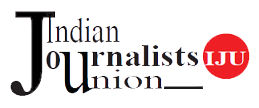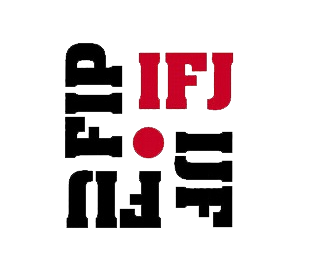24 March 2020: The Indian Journalists Union (IJU) is urging journalists and its members across States to exercise utmost care in their coverage of the coronavirus outbreak to ensure accurate, fair and responsible reporting and to remain safe.
The media must avoid inciting unnecessary panic, sensationalism, fueling xenophobia and racism that unfortunately have already emerged in some of the countries impacted with the pandemic. The IJU specifically asks journalists to take note of the World Health Organization’s guidelines in 2015 which discouraged use of geographic locations when naming illnesses because it could stigmatize the people living there as well as the latest guidelines on the pandemic.
IJU advisory to journalists to follow do’s & don’ts:
- As the situation evolves and new information emerges, updated health advice and outbreak news will be issued by the relevant authorities. To keep up-to-date, journalists covering the outbreak should monitor the WHO and the MoHFW, India.
- Regularly check the status of any event you plan on attending, taking into account that numerous States/countries have banned public gatherings above a certain number of people.
- Be aware of misinformation, something that the WHO has specifically warned about and that the International Federation of Journalists (IFJ) and other world bodies have highlighted. A myth buster guide is available on the WHO website.
- Discuss what plans your management team has in place to assist and support you should you fall ill while on assignment, taking into account the possibility of self-isolation and/or being grounded in a quarantine/lockdown zone.
- Consider what supplies you may need to take with you. Shortages of certain items have been reported along with incidents of panic buying, including face masks, hand sanitizers, soap, canned food, and toilet paper
- Consider the potential psychological impact of reporting from an area affected by COVID-19, especially if reporting from a medical or isolation facility, or quarantine zone.
- Family members of journalists may be concerned and stressed about such assignments. Have a discussion with them about the risks and their concerns. If necessary, set up a conversation between family members and your organization’s medical advisers.
- The Heath and Family Welfare department and WHO are in agreement that it is not necessary for people without symptoms to wear masks, unless you are told to by the local authorities; you are in a high-risk area such as a hospital; or you are taking care of a person with suspected COVID-19 infection. If you do wear a mask you should follow standard advice given by the authorities.
- If you do have symptoms inform your management team and the authorities. Work with them to take appropriate transportation from the airport or other transport hub to your home. Go home and follow the relevant self-isolation advice.
- Pay attention to your digital security, noting that scammers and hackers are reportedly targeting individuals with phishing emails related to COVID-19, according to Norton, a cyber safety company.
- Be aware of apps that target individuals for ransomware, such as COVID-19 Tracker.
- Do not travel if you are sick. Most international and regional airports, as well as other transportation hubs, have implemented strict health screening measures. Travelers are likely to face testing and/or enforced quarantine/self-isolation on arrival.
- You should purchase fully refundable flight tickets. COVID-19 is causing significant financial distress for many airlines.
- Be aware that global travel options have massively reduced in recent weeks due to airlines cancelling flights to/from many destinations. Further cancellations are likely as cases of COVID-19 increase significantly in more countries.
- Check on the latest visa situation for your destination, noting that numerous countries have suspended visas that have already been issued for travel.
- Many countries, including India are now practicing social distancing. If visiting a health facility, a care home for the elderly, a quarantine zone, animal markets and/or a farm, inquire about the hygiene measures that are in place. If in any doubt, do not visit. Please follow Standard recommendations to avoid infection.
The IJU reiterated as professionals we have a responsible role to play in these difficult times and yet at the same time ensure that our members remain safe. Leadership in various States is urged to keep a close watch on the consequences the pandemic will have on the media sector, like others, and prepare to deal with it an appropriate time.





